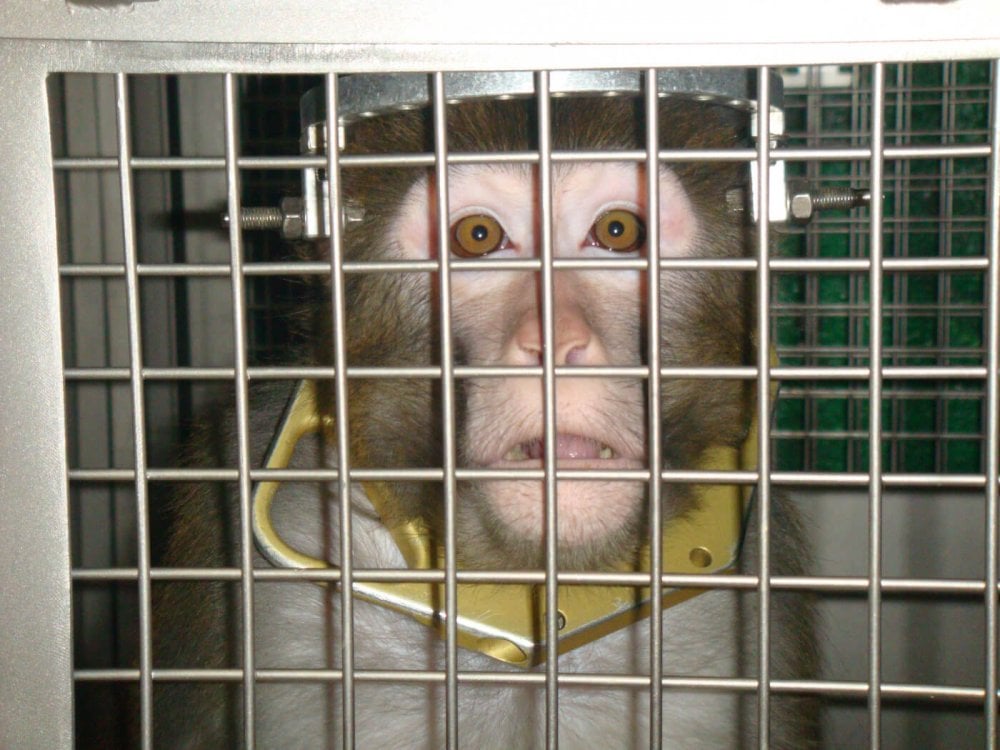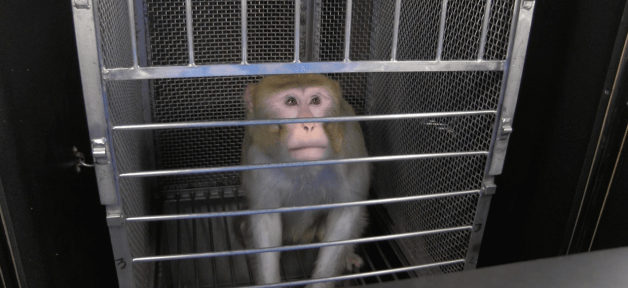Cost Plus World Market—which is owned by Union Township–based Bed Bath & Beyond—has banned Chaokoh coconut milk after the brand’s supplier was implicated in PETA Asia’s first-ever undercover investigation into the use of monkeys in Thailand’s coconut industry. The investigation reveals that monkeys are chained, confined to cramped cages, and forced to climb trees and pick coconuts to be used in products like coconut milk.
PETA Asia’s eyewitnesses visited four “monkey schools,” eight farms, and one coconut-picking competition, in which chained monkeys—reportedly illegally captured as babies—were forced to climb palm trees and pick coconuts for export around the world. When not being forced to pick coconuts, the animals were kept tethered, chained to old tires, or confined to cages barely larger than their bodies. At the facilities, monkeys displayed stereotypic repetitive behavior indicative of extreme stress. One monkey in a cage on a truck bed shook his cage repeatedly in a desperate, futile attempt to escape, and a screaming monkey on a rope frantically tried to run away from a handler. An investigator learned that if monkeys try to defend themselves, their canine teeth may be pulled out.
“These curious, highly intelligent animals are denied mental stimulation, companionship, freedom, and everything else that would make their lives worth living, all so that they can be used to pick coconuts,” says PETA President Ingrid Newkirk. “PETA believes virtually all coconuts from Thailand are picked by abused monkeys and is calling on kind people to buy coconut products that are sourced elsewhere.”
Cost Plus World Market will stop selling Chaokoh products in its 276 stores nationwide as well as its online store. Walgreens Boots Alliance has agreed not to stock Aroy-D or Chaokoh products or sell any own-brand coconut food or drink products of Thai origin in its 9,277 Walgreens and 250 Duane Reade stores in the U.S. and its 2,758 Boots stores in the U.K and Thailand. Ahold Delhaize and its 2,000 U.S. store locations and distribution centers (including Giant Food, Food Lion, Stop & Shop, and Hannaford), as well as its 889 Albert Heijn stores in the Netherlands, have also committed to not stocking or selling any coconut products sourced from suppliers that use monkey labor.
Photos from the investigation are available here, and broadcast-quality footage is available upon request. PETA—whose motto reads, in part, that “animals are not ours to abuse in any way”—opposes speciesism, a human-supremacist worldview. For more information, please visit PETA.org.
#
The post Monkey Labor Exposed: Cost Plus World Market Drops Leading Coconut Milk Brand appeared first on PETA.



